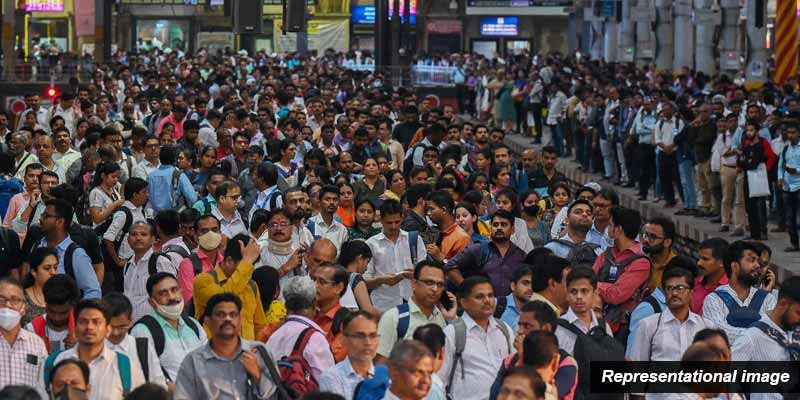- India
- Jun 16
MHA issues notification for Census 2027
• The Ministry of Home Affairs issued a notification for conducting India’s 16th Census with caste enumeration in 2027.
• The Census will be carried out with a reference date of October 1, 2026 in snow-bound areas like Ladakh and March 1, 2027 in the rest of the country, the notification said.
• The reference date for the said Census shall be March 1, 2027, except for the Union Territory of Ladakh and snow-bound non-synchronous areas of the Union territory of Jammu and Kashmir and the States of Himachal Pradesh and Uttarakhand.
• The last nationwide census was completed in 2011.
• The population of the country as per the Census 2011 was 121.19 crore of which 62.37 crore (51.54 per cent) were males and 58.64 crore (48.46 per cent) were females.
• The massive exercise to give population-related data from across the country will be done by about 34 lakh enumerators and supervisors and around 1.3 lakh census functionaries armed with digital devices.
• Provision of self-enumeration would also be made available to the people.
• Union Home Minister Amit Shah reviewed the preparation for the Census with Union home secretary, Registrar General and Census Commissioner of India Mritunjay Kumar Narayan and other senior officials in New Delhi on June 15.
Census
• The Census of India is conducted under the provisions of the Census Act, 1948 and the Census Rules, 1990.
• The Census is the largest single source of a variety of statistical information on different characteristics of the people of India conducted on the basis of the Census Act.
• The Census is the basis for reviewing the country’s progress in the past decade, monitoring the ongoing schemes of the government and plan for the future.
• The Census will be conducted in two phases. In phase one — Houselisting Operation (HLO) — the housing conditions, assets and amenities of each household will be collected.
• Subsequently, in second phase — Population Enumeration (PE) — the demographic, socio-economic, cultural and other details of every person in each household will be collected.
• The Census provides detailed and authentic information on demography, economic activity, literacy and education, housing and household amenities, urbanisation, fertility and mortality, Scheduled Castes and Scheduled Tribes, language, religion, migration, disability besides others.
• The enumerators also collect data related to cultivators and agricultural labourers, their sex, occupational classification of workers in non-households industry, trade, business, profession or service by class of worker and sex.
• There will be a detailed survey on gender and literacy rate, number of towns, slum households and their population.
• Information is also collected on sources of potable water, energy, irrigation, method of farming, whether a house is concrete, thatched or others.
• This reliable, time-tested exercise has been bringing out a veritable wealth of statistics beginning from 1872 when the first Census was conducted in India non-synchronously in different parts.
• The government decided in May 1949 to initiate steps for developing systematic collection of statistics on the size of population, its growth, etc, and established an organisation in the Ministry of Home Affairs under Registrar General and ex-Officio Census Commissioner, India.
• This organisation was made responsible for generating data on population statistics, including vital statistics and Census. Later, this office was also entrusted with the responsibility of implementation of Registration of Births and Deaths Act, 1969.
Additional Read:
A caste census involves the systematic collection of data on the caste identities of individuals during a national census exercise. In India, where caste has historically shaped social, economic, and political dynamics, such data can provide insights into the demographic distribution, socio-economic conditions, and representation of various caste groups. This information can be used to inform policies on affirmative action, reservations, and social justice.
Manorama Yearbook app is now available on Google Play Store and iOS App Store

